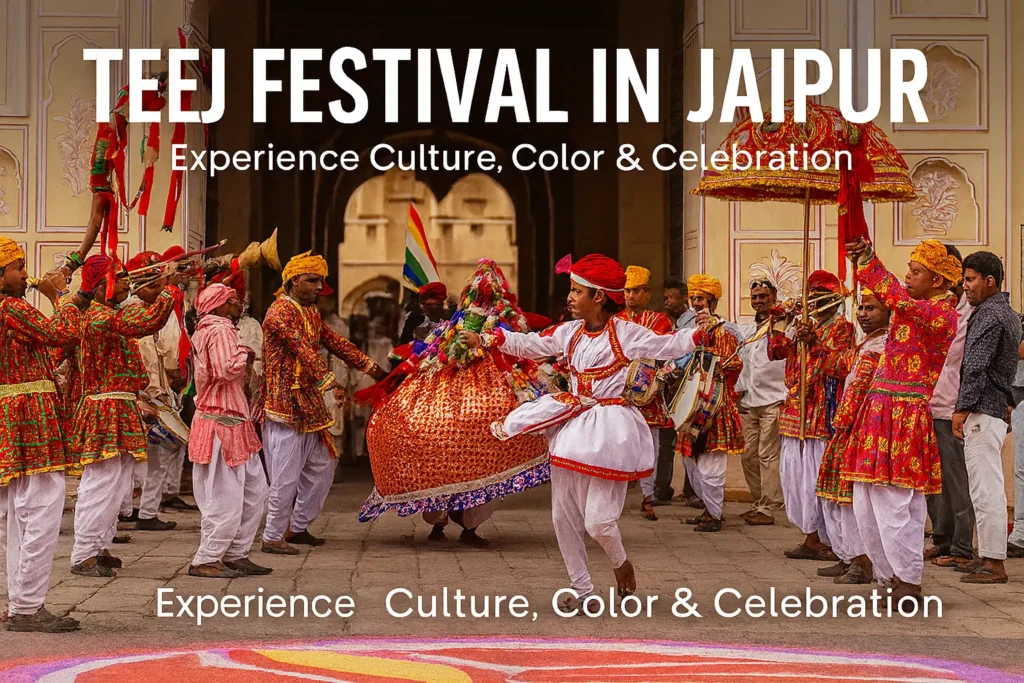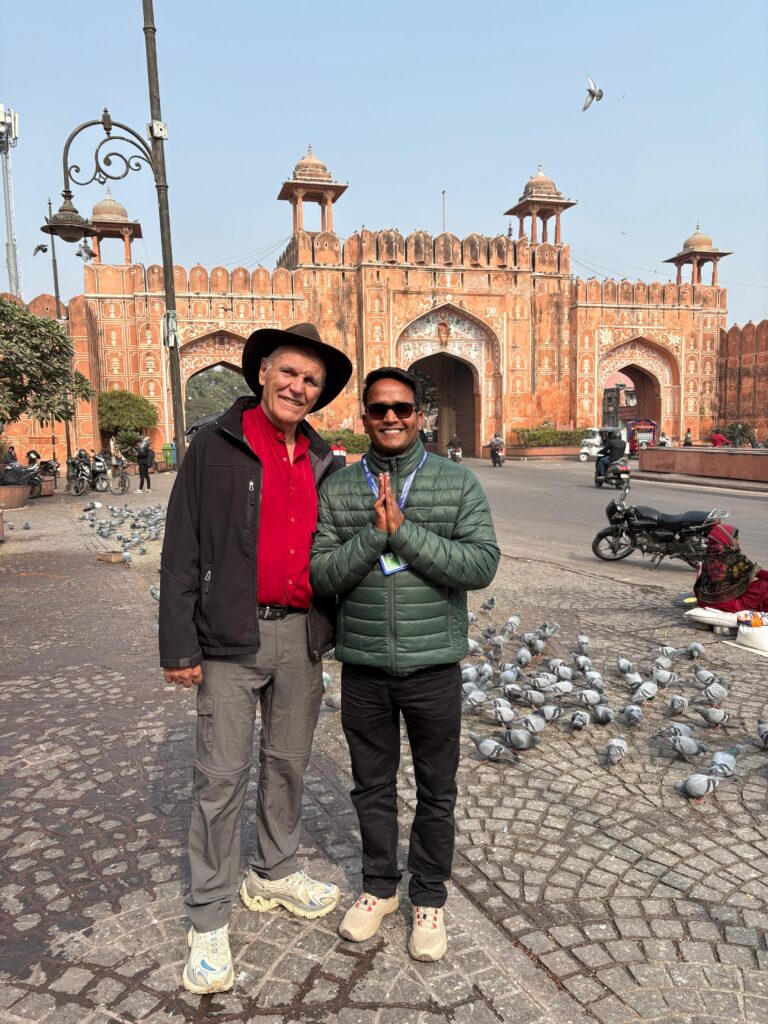Teej Festivals in Jaipur

Table of Contents
Festivals in Jaipur are not just events—they’re an explosion of color, culture, and celebration. From royal processions to traditional rituals, every festival tells a story of Rajasthan’s rich heritage. If you truly want to experience Jaipur like a local, there’s no better way than joining in its festive spirit.
At Dhanraj Tour Guide Jaipur, we make sure our guests don’t just watch the festivals—they live them. One of the most beautiful and culturally rich festivals you can witness is the Teej Festival.
Held during the monsoon, Teej celebrates love, devotion, and the bond between Lord Shiva and Goddess Parvati. Let’s explore what makes Teej in Jaipur so special and why you should experience it with a local guide.
Why Teej is Celebrated – The Story Behind the Festival
Teej is more than just a vibrant celebration—it’s a festival rooted in deep spiritual and emotional significance. According to Hindu mythology, Teej commemorates the reunion of Goddess Parvati and Lord Shiva, symbolizing eternal love, devotion, and the power of perseverance. As the story goes, Goddess Parvati undertook strict penance and fasting for 108 lifetimes to win Lord Shiva’s love. Impressed by her dedication, Lord Shiva finally accepted her as his consort. Thus, Teej marks the day of their divine union and is observed as a celebration of love, faith, and marital bliss.
In many parts of India, especially in Rajasthan, Teej is considered extremely auspicious for married women, who pray for the well-being of their husbands, and for unmarried girls, who seek blessings for a good life partner. In Jaipur, Teej takes the form of a cultural spectacle. The devotion transforms into grandeur—with royal processions, decorated idols, traditional songs, and vibrant attire lighting up the entire city. It becomes a time when faith meets festivity, and locals come together to celebrate not just a mythological tale, but a deep-rooted cultural heritage passed through generations.
Teej Procession in Jaipur
One of the main highlights is the royal Teej procession, which begins from Tripolia Gate in the old city.
Here’s what you’ll see:
- Decorated palanquins carrying the Teej Mata idol
- Traditional folk dancers and musicians
- Camels, elephants, and horses with colorful attire
- Locals and tourists dressed in vibrant traditional outfits
Location: Tripolia Gate to Chaugan Stadium
Timings: Usually starts in the evening (around 5 PM)
Best time to visit: July–August (Shravan month)
Read Our Latest Blog :- Things to Know Before Booking a Guided Tour in Jaipur
What Women Wear & Do
- Women wear green, red, and yellow clothes (colors of monsoon)
- Hands are decorated with beautiful Mehandi (henna)
- They swing on decorated swings, sing songs, and enjoy sweets like Ghewar
Traditional Food to Try During Teej
No festival in Jaipur is complete without food! During Teej, you must try:
- Ghewar – A traditional Rajasthani sweet soaked in sugar syrup
- Feeni – A fine-threaded dessert
- Dal Baati Churma – The soul of Rajasthani cuisine
You’ll find local sweet shops brimming with seasonal delicacies during this time.
Best Spots to Experience Teej in Jaipur
If you’re visiting during the festival, make sure you:
- Watch the procession at Tripolia Bazaar
- Visit City Palace which often hosts private cultural evenings
- Explore decorated famous temples like Iskcon Temple & Govind Dev Ji
Tips for Travelers During Teej
- Carry an umbrella or raincoat (monsoon season)
- Wear comfortable footwear (you’ll walk a lot)
- Book accommodations in advance—the city gets crowded
- Travel with a local guide to understand cultural significance better
Planning to Visit Jaipur During Teej Festival?
Experience the real colors of Jaipur with Dhanraj Tour Guide Jaipur — from royal processions to local traditions, we’ll guide you every step of the way.

